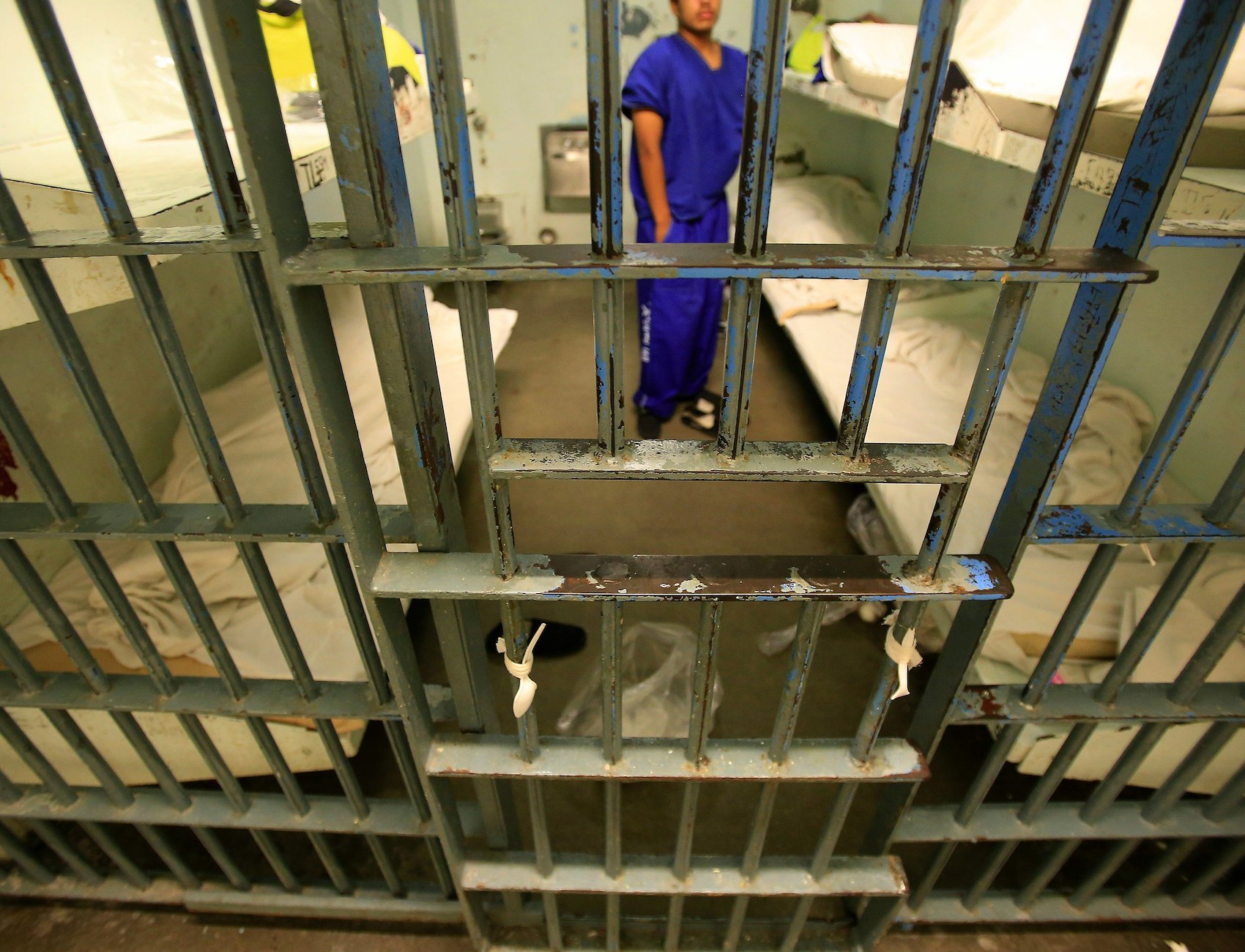Closing California Courts Won’t Prevent A COVID-19 Crisis in Jails
Los Angeles County judges must move quickly to release a broad group of people in custody.

This piece is a commentary, part of The Appeal’s collection of opinion and analysis.
The COVID-19 pandemic has brought the legal system to a halt in Los Angeles County. Superior Court Judge Kevin Brazile, the county’s presiding judge, has issued three orders taking steps to address COVID-19, but none of them outline the policies necessary to quickly and appropriately depopulate the jails—the most important way to curb the spread of the disease and save thousands of lives.
On March 17, Brazile issued his initial order closing all courts in the county for three days. Five days later, he ordered the Sylmar Courthouse to be closed for three days following the news that a deputy public defender tested positive for coronavirus. On March 23, Brazile blocked public access to all county courthouses, placed delays on many criminal cases, and ordered the prioritization of bail hearings. While these types of emergency orders appropriately protect judges, attorneys, and court staff from this deadly virus, they may make the situation all the more dangerous for the thousands of Angelenos, mostly Black and Latinx, who remain trapped in jails and juvenile halls, awaiting court dates.
The conditions inside Los Angeles County jails and juvenile halls are already appalling. In Men’s Central Jail, some people share a cell about six feet by six feet, and generally only leave the cell for one hour a day. They lack necessary hygiene products and adequate medical treatment. Under ordinary circumstances, the jail is unsafe; during this pandemic, it is a death sentence. The virus has entered the courts, and over the weekend, a person who is incarcerated in one of the jails tested positive for COVID-19; several individuals’ test results are pending. It is only a matter of time before the virus spreads, as it has in jails around the country.
On March 24, Brazile issued a press release announcing that an agreed upon list of individuals held pretrial will be released from custody. However, this announcement lacked any information about the criteria for release, the number of people who will be released, or a long-term release strategy. There is still no information on whether people on this list have been released.
Those who remain in custody, however, could remain locked up in these dangerous conditions for even longer than usual. As part of Brazile’s March 17 order, those booked into custody for felonies may now have to wait seven days before seeing a judge, instead of the usual 48 hours, and their trials can be extended by up to an additional 30 days.
Faced with the possibility of an additional month in jail awaiting trial, and at extreme risk of contracting a deadly disease, most people will give up their trial right, or plead out, if it means getting out sooner. This coercive process is unfair, undermines the integrity of our courts, and can saddle people with wrongful convictions and lifelong consequences.
Brazile has the power to right this ship and implement policies that protect everyone. California law allows judges to release adults charged with misdemeanors and all non-capital felony offenses without imposing money bail. The judiciary took the appropriate step and mandated $0 bail for most misdemeanors and certain categories of felonies. It is unclear whether these standards apply to individuals who were arrested and incarcerated before the COVID-19 crisis. It is urgent that people in custody pretrial are evaluated and quickly released, particularly those who are in custody simply because they cannot afford bail.
If the judiciary does not act, thousands of lives will continue to be at risk. While courts are closed to the public, attorneys, judges, and court employees are still going to court. According to Court Watch Los Angeles, some courtrooms had 30 to 40 people present as recently as March 20, clearly violating social distancing recommendations. With potential plans to proceed by consolidating even more cases in fewer courtrooms in the county, this situation could be exacerbated. By overburdening courtrooms with more cases, it is certain that people in custody will remain there longer while waiting to see a judge or resolve their case.
This is why Brazile must act immediately and order a release of a broad group of people: those who are not substantially likely to cause bodily harm to another person and those who are being held solely on probation/parole violations. In addition, judges should use their authority to release, without setting bail, those brought into court on their first appearances. Hearings for people out-of-custody should be postponed so that courts can prioritize arraignments, preliminary hearings, trials, and juvenile detention hearings for all individuals in custody and hold them within the normal statutory time limits. When hearings do occur, each courthouse should identify practices that allow for the social distancing necessary to keep everyone safe.
Failure to do the above will severely endanger people trapped in jail during this pandemic, as well as the jail staff, their families and their communities.
Judge Brazile must act now, before it’s too late.
Alicia Virani is the Gilbert Foundation associate director of the Criminal Justice Program at UCLA School of Law and was previously a public defender in Orange County.
Update: On Thursday, after this article was published, Presiding Judge Kevin Brazile issued an order indicating that Los Angeles County courts will extend preliminary hearings, trials, and arraignments well beyond what his March 17 order outlined: People in jail and charged with a felony may now have to wait up to 30 court days—the equivalent of six weeks—for their preliminary hearing and an additional 60 days for their trial.
